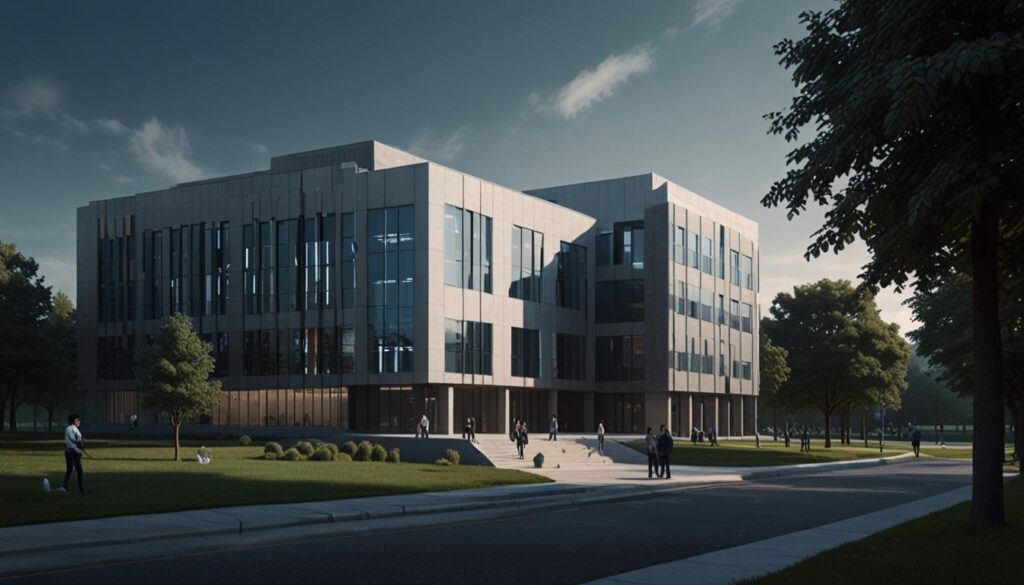Northshore Technical Community College is enhancing its digital accessibility efforts by incorporating cutting-edge AI-powered tools to make educational content more accessible. By embracing advanced technologies, the college aims to provide inclusive education for all students.
Northshore Technical Community College Enhances Accessibility Efforts with Advanced AI Tool
Northshore Technical Community College (NTCC), a member institution of the Louisiana Community and Technical College System, is set to enhance its digital accessibility initiatives by adopting cutting-edge AI-powered tools. The college has chosen to implement additional features within YuJa’s accessibility suite to further its progress in making educational content more accessible to all students.
The new tools, YuJa Accessibility AutoPilot and PDF Remediation MAX Platform, will integrate with YuJa Panorama, a digital accessibility platform currently in use at NTCC. These additions are expected to automate and streamline the process of identifying and rectifying accessibility issues in educational materials.
Addressing Accessibility Challenges
YuJa Accessibility AutoPilot leverages artificial intelligence to identify and propose solutions to accessibility issues found in documents within the institution’s learning management system (LMS). Some of the common problems it tackles include improper font size, inadequate colour contrast, missing elements, and hyperlink context issues. Once identified, these issues are sent to the Remediation Engine for automatic correction.
The PDF Remediation MAX Platform, meanwhile, is designed to handle more complex PDF accessibility challenges. This tool allows instructors to resolve structural issues and create tagged PDFs directly within NTCC’s LMS, which runs on Canvas. This integrated approach aims to bring all course content into compliance with the World Wide Web Consortium (W3C) and Web Content Accessibility Guidelines (WCAG) 2.1 standards, ensuring equal access for all students.
Significant Improvement in Accessibility
NTCC has already seen a notable improvement in its accessibility ratings by utilising the YuJa Panorama Digital Accessibility Platform, which has boosted scores by 30 percent. Nathan Arora, Chief Business Officer at YuJa, Inc., noted the significance of these advancements. “Making content, especially PDFs, accessible can be a challenge,” he said. “Now, instructors can address issues like logical structure and create tagged PDFs to benefit all learners.”
Commitment to Quality Education
For over 90 years, NTCC has been a pillar of education in the Northshore region of Louisiana. The college provides workforce education and transfer opportunities that lead to industry-based certifications, technical diplomas, and associate degrees in high-demand fields. It serves communities across five parishes: Livingston, St. Helena, St. Tammany, Tangipahoa, and Washington.
Incorporating these advanced tools aligns with NTCC’s long-standing commitment to improving the quality of education and accessibility for all students. By addressing digital accessibility proactively, the institution ensures that all learners, including those with disabilities, have the resources they need to succeed.
YuJa’s Role in Education
YuJa, Inc. is a leading provider of cloud-based platforms and applications for sectors requiring regulated content distribution, including higher education, K12, healthcare, and government. With main offices in Silicon Valley, California, and additional locations in Delaware and Toronto, Canada, the company focuses on creating engaging digital media experiences for its clients.
A Broader Impact on Accessibility
NTCC’s adaptation of these new technologies underscores a growing trend in educational institutions towards embracing AI and automation to address complex accessibility issues. It highlights a crucial aspect of modern education, where compliance with accessibility standards is not just a legal requirement but a moral imperative to ensure inclusive education.
As NTCC and other institutions continue to invest in such technologies, the landscape of digital education is poised to become more equitable, providing all students with the opportunity to thrive regardless of their abilities.










